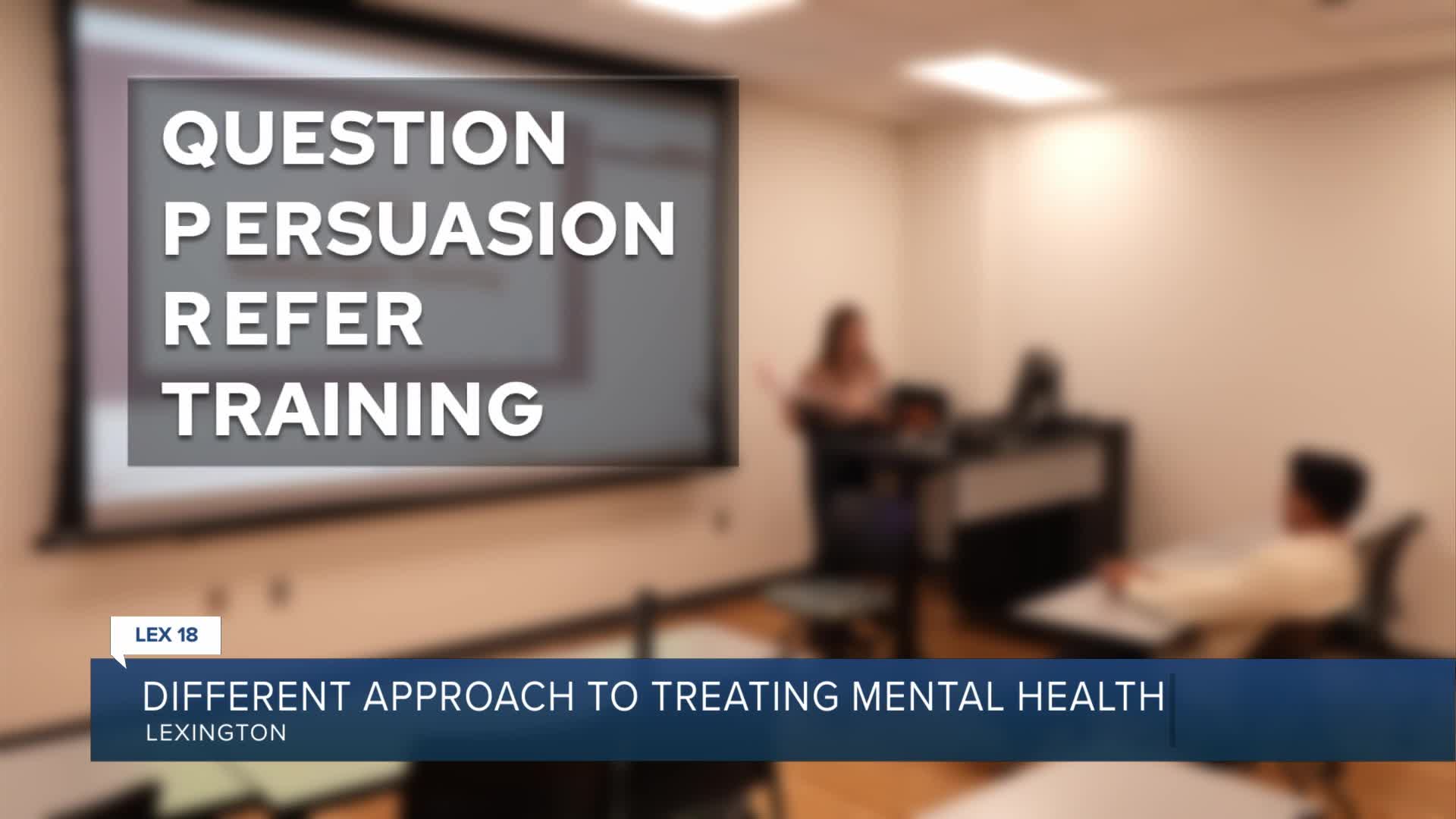LEXINGTON, Ky. (LEX 18) — The seasons are changing in Kentucky, and with less sunlight and the holidays around the corner, it can be an overwhelming time of year for many people.
Suicide is the second leading cause of death in Kentucky among people aged 10 to 34, according to experts at the University of Kentucky who are working to help those facing depression during this challenging season.
"People who are in that kind of a dark place are still craving hope and connection, and so a loved one asking, are you okay? Are you thinking about doing this can be really, really meaningful," said Dr. Sarah Geegan.
Dr. Geegan is speaking from experience as someone who struggles with mental health. She says this time of year is tough because it gets dark earlier, and the colder weather pushes people to spend more time inside. The National Institute of Health says these factors can disrupt people's daily rhythm.
"I know for a fact that somebody asking the question and sort of extending that hope saved my life, and I feel pretty confident that me asking a question to one of my really close friends might have saved her life as well," Geegan said.
Recently, she and her colleagues at UK have been working on promoting Question, Persuade, and Refer training, or QPR.
"It's focused on the people around the person who is struggling, right? So it teaches people how to recognize warning signs, what are certain behaviors, certain statements that people might make if they're in a dark place," Geegan said. "Then gives you the tools to start that conversation."
UK Healthcare is footing the bill, so anyone in the state can take the online training for free. Nearly 4,000 people have completed the 30-minute course.
"As a community, as Kentuckians, I think we're ready to step up when people are in physical danger or have experienced some sort of physical crisis. I think mental health we should be just as supportive of that. I think it's just as much of a community responsibility," Geegan said.
"It's about building a safety net around people that we care about. So there's actually research that demonstrates that, like within a given community, if the rates of QPR training go up, we generally see suicide rates go down," she said.
"I think a lot of times, people don't realize how much expressing hope or expressing care for someone can make a difference," Geegan said. "I see it as an opportunity to turn pain into something really powerful."
If you or someone you know needs help, the national suicide and crisis lifeline in the U.S. is available by calling or texting 988.





